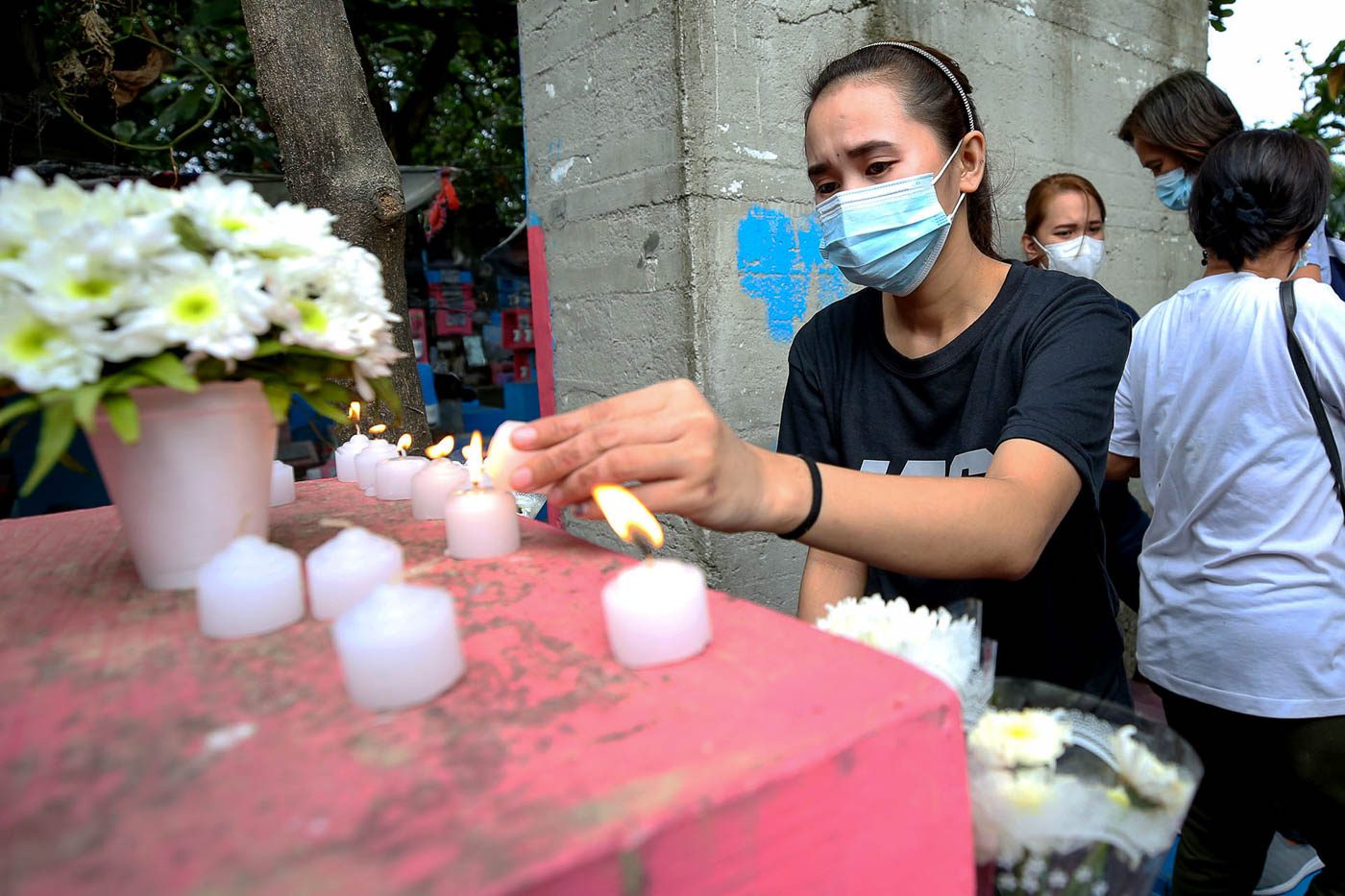SUMMARY
This is AI generated summarization, which may have errors. For context, always refer to the full article.

MANILA, Philippines – The Supreme Court (SC) sided with activist Reina Mae Nasino and her companions, and upheld the voiding of search warrants used for their arrest in 2020.
In a resolution, the SC Third Division denied the petition for certiorari filed by Office of the Solcitor General (OSG) challenging the decision that voided the warrants against Nasino, Ram Carlo Bautista, and Alma Moran. In denying the petition, the High Court affirmed the Court of Appeals’ (CA) decision that voided the warrants earlier.
The OSG also failed to show that the appellate court committed any reversible error in voiding the warrants.
Nasino and her companions were arrested during a search operation at the office of progressive group Bagong Alyansang Makabayan on November 5, 2019. Nasino was pregnant at the time. The three were slapped with illegal possession of firearms and explosives charges, but the activists said the police planted the evidence.
Nasino’s arrest was only the start of her misery. She gave birth to her daughter, Baby River, while in jail and at the height of the pandemic. Her case put pressure on the courts to apply humanitarian considerations due to her condition.
While Nasino was in jail, Baby River died shortly after her mother filed a motion for furlough. Nasino only had six hours to say goodbye to her beloved daughter after the court revised the furlough from three days to six hours.
Two years after her arrest, Nasino and her companions were released from detention after Manila Regional Trial Court (RTC) Branch 47 court granted their petition for bail. The activists’ camp had to post bail amounting to P282,000 for their provisional release.
Before that, in September 2022, the CA already voided the warrant against the activists, citing failure to meet standards. In July 2023, Manila RTC Branch 47 acquitted the three of their charges.
The SC ruling
The SC in the ruling cited the requisites of a valid search warrant:
- Probable cause is present
- Such probable cause is determined personally by a judge
- The judge must examine, in writing and under oath or affirmation, the complainant and the witnesses he/she may produce
- The applicant and the witnesses testify on the facts they personally know
- The warrant must specifically describe the place to be searched and items to be seized
The SC underscored an irregularity in the implementation of the ruling by citing Diaz vs. People. In the said case, the High Court stated that search warrants must particularly describe the place to be searched and items to be seized, otherwise, “it is considered as a general warrant which is proscribed by both jurisprudence and the 1987 Constitution.”
The High Court explained the purpose of this “specificity” is to ensure that law enforcers have no discretion as to where they search and what they seize.
In the warrants used against Nasino and companions, the address was meant for Barangay 183 in Tondo, Manila, and yet the warrant was implemented in Barangay 178. The SC said it agreed with the CA that the warrants lacked specificity of place, adding that the discrepancies in the address “invite abuse of discretion on the part of the law enforcers and thereby circumventing the purpose of the specificity requirement of a search warrant.”
“Strangely, although the subject warrants are only addressed to respondent Bautista, the implementing officers also subjected respondents Moran and Nasino to the search. Hence, it is clear from the foregoing that the latter’s right against unreasonable searches and seizures was clearly violated,” the SC explained. – Rappler.com
Add a comment
How does this make you feel?









There are no comments yet. Add your comment to start the conversation.